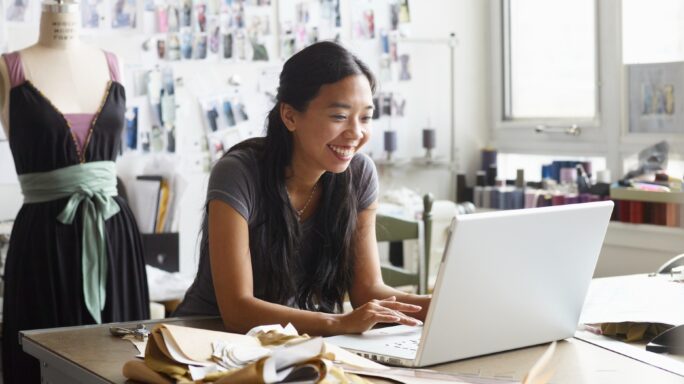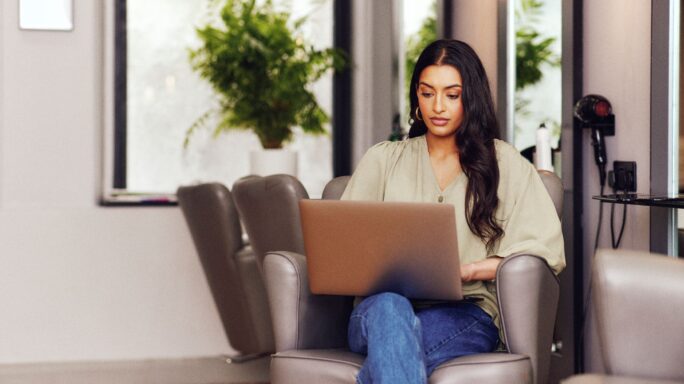The Split Screen Coffee Company: ‘Mothballing my business is a strong shot of reality’
In our Your Story series, we speak to business owners about the challenges they’re facing and the steps they’re taking to overcome them. Jen Walker, the founder of the Split Screen Coffee Company, talks about how her business is dealing with the coronavirus (COVID-19) disruption and offers advice that could help your company. Even though […]
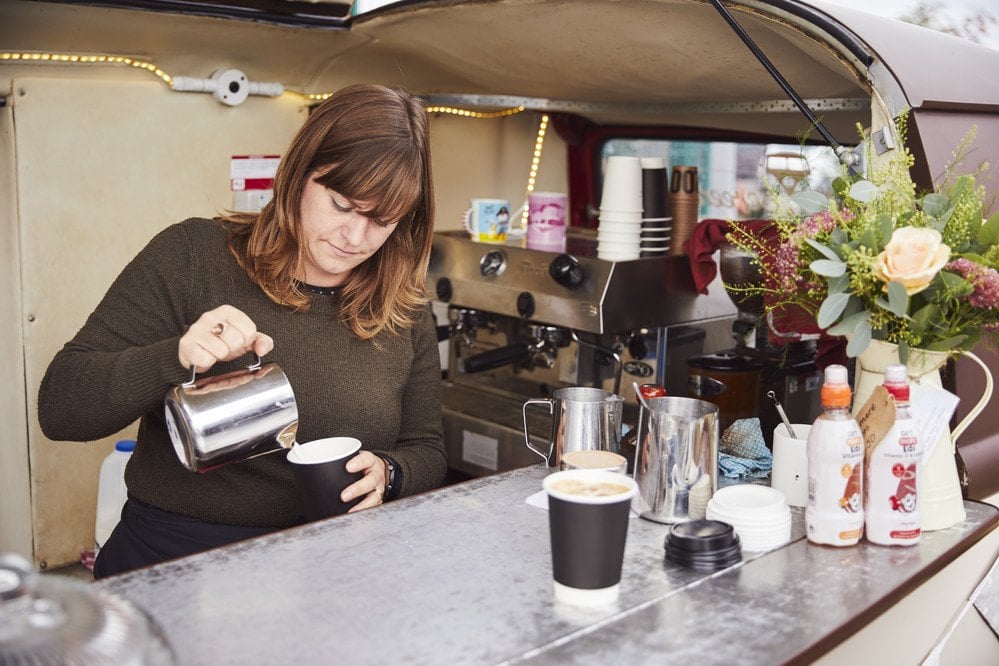
In our Your Story series, we speak to business owners about the challenges they’re facing and the steps they’re taking to overcome them. Jen Walker, the founder of the Split Screen Coffee Company, talks about how her business is dealing with the coronavirus (COVID-19) disruption and offers advice that could help your company.
Even though I’m writing on Sage Advice, it’s hard not to feel like a little bit of a fraud in some ways as I am not currently operating as a business.
It’s frustrating that my small, strong, independent business has now become impossible to operate.
It’s a sad time after having put so much effort into building a successful, well-known brand and I am hopeful and confident that the long-term plan is to reopen but I really feel like I’m just getting by and almost weathering a storm.
I spent 15 years as a teacher before starting the Split Screen Coffee Company in pursuit of a more flexible career after I had children.
Our van, called May, started life in 1965 as a bread delivery vehicle for the local byckerei (German bakery) in Wolfsburg before she was shipped over to England in 2005 and restored by a VW enthusiast.
Eventually, in 2013, she was converted into a mobile cafe to deliver quality coffee for all.
No snobbery, no hipsters, no pretence.
Just a belief that there is pleasure in a good cup and that is a treat that’s afforded to everyone, wherever you are.
Fast forward a few years, and I’m trying to assess how much longer I’m going to remain in business. I’m event-based and it’s looking like many are just going to be scrapped until next year.
Until there’s a vaccine, some sort of social distancing looks likely to be a way of life.
I have been selling my own branded coffee which generates some income but the summers with big festivals with big queues and loads of people crowded around are when I generate most of my cash.
“I’m trying to assess how much longer I’m going to remain in business”
And none of my usual events look likely to happen this year.
It can feel overwhelming at times because of the weight of uncertainty and the stress that comes with that.
However, the downtime has allowed me the space and chance to reflect and think of new ways of running my business.
I think the kindest most productive thing we can do for each other right now is to lessen that pressure and be honest about what we are going through.

Jen sells luxury cupcakes and coffee at events around the country – but things are on hold for now
Don’t beat yourself up for lack of creativity – honesty is an anchor
It’s hard to be creative when you’re under a lot of stress. The biggest advice I can give is to talk to your network of traders and speak to the people around you, and be open and honest.
One thing I’ve discovered is this new wealth of honesty and shared strength among business owners.
That bluster of pretending to be on top of everything – a lot of that has disappeared.
It’s refreshing.
My coffee supplier is giving me advice on how to furlough because she’s learning just as much as I am and we’re giving each other help with the ins and outs of the government grants and loan schemes as they are released, so we’ve found new ways of supporting each other.
As business owners, we’re finding the common ground of being in a horrible situation – which is a leveller and is fostering a sense of comradery among us all.
It’s honest, it’s truthful.
I used to go to networking events where everyone would go: “Oh, I turn over this, that and the other,” and it’s misrepresenting the truth of a small business owner’s day to day.
I love my business. I really don’t really want to let it go.
But in the mean time, I need to continue to bring in money for my family. So I’ve pushed coffee sales, used the government’s Job Retention Scheme and also applied for short-term work to make sure I’m in a good position to get my business running again when it all opens up.
That’s probably what people have to do. That is the honest appraisal of the situation.
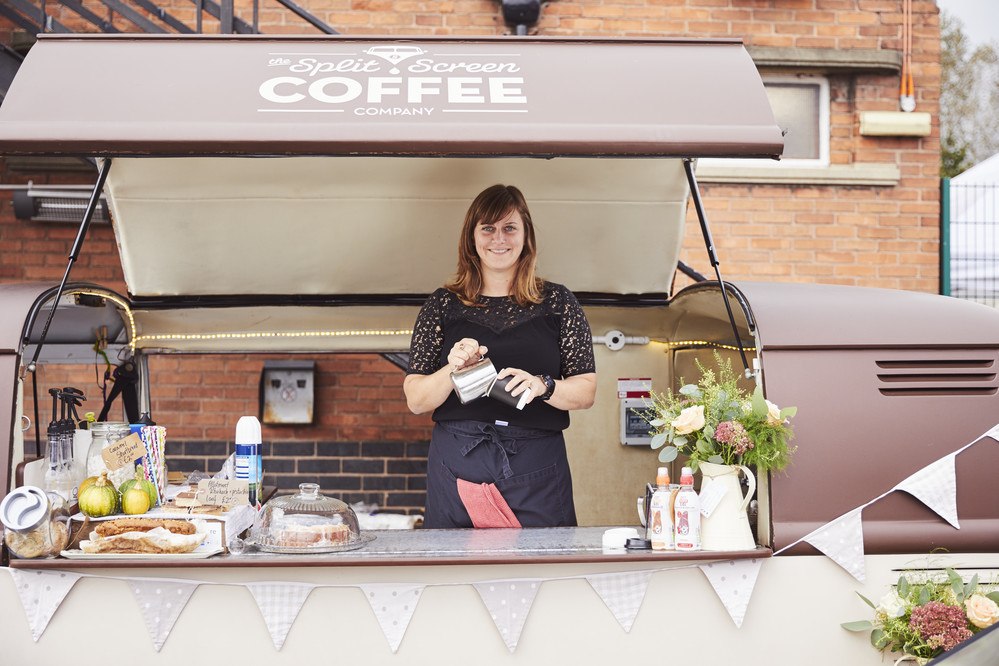
Jen has been reviewing all of the options that are open to her and her business
Isolation doesn’t have to be siloed – join local traders united by the same goal
I’ve thrown myself into my community. There’s a smattering of different businesses and we have joined forces with them.
For example, I am selling my coffee at The Bottle Top – a wonderful local zero-waste shop run by a young family who are really keen to get stuck in and do things locally.
When the high street started to decline, an inspirational group of local volunteers formed an organisation called the Ruddington Village Centre Partnership (RVCP), an award-winning group who organise our village markets once a month.
They have brought a lot of new shoppers into our high street again. I have traded at the market for the past year and as a founding member of the committee, we have increased footfall back into the village and raised the traders’ profile.
Traders now have monthly virtual meetings using Zoom and WhatsApp – still connecting and working together through the lockdown.
As a traders group, we encourage each other to think creatively to make sales. For example, all the local businesses are coming together to celebrate VE Day.
We hope everyone locally will celebrate in their gardens and we have produced a VE Day hamper for people to purchase to support their local businesses.
As well as my coffee, the hamper will include hand sanitiser made at the repurposed local gin distillery, fruit and veg, bread, fresh flowers, beer and other local produce that’s perfect for a picnic.
Mothball the business if you have to – a government loan is not a grant
I have been searching high and low for advice on all the available options open to me and my business and that has included emailing my MP for advice.
She has responded and promised to speak up for businesses such as mine but unfortunately, I am one of the businesses that slipped through the government grant net as I don’t have a rateable value.
A loan for research, development or growth makes sense – but a loan, even at attractive rates, just as a way of keeping my business afloat, is a worrying thing to consider.
I’ve always been self-sufficient with my finances and my fear is that I don’t know when I’ll be able to pay it back.
I don’t know when I will be operating like I need to be and so I’ve stopped all ‘unnecessary’ outgoings – it makes the most sense for me to almost mothball my business.
The uncertainty we are all facing as business owners is unprecedented and I hope I’m lucky enough to be one that can weather this global storm.
I don’t think anyone can possibly say with 100% guarantee what lies ahead but I would predict that I will need finance to start back up.
Right now, all I can do is make cuts in my outgoings, really squeeze it all down and hope.
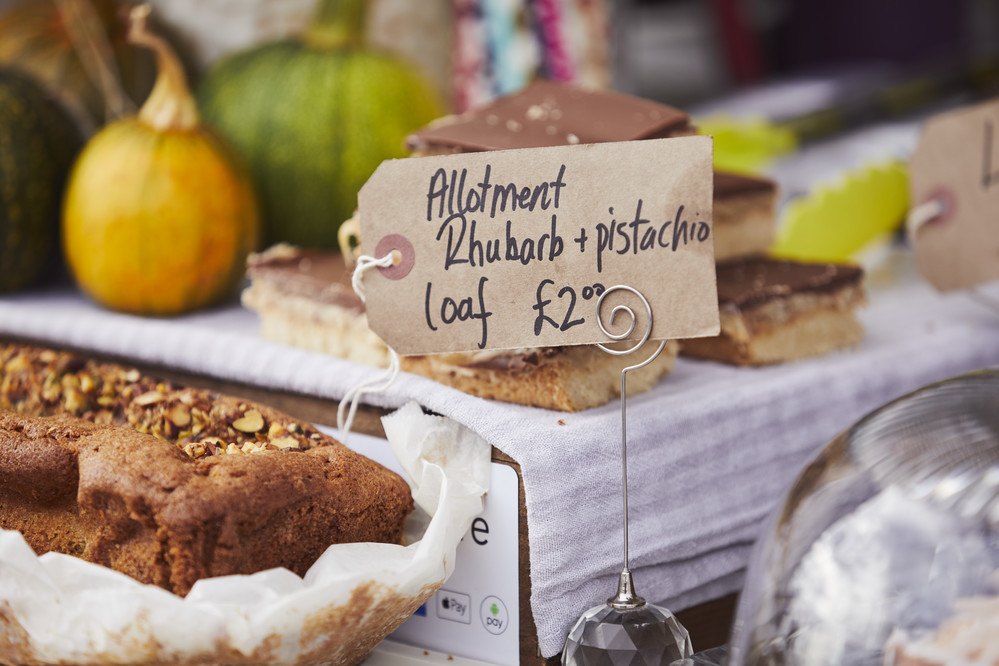
Jen is exploring alternative business models as she looks to the future and trading at full capacity again
Consider evolving your business model – a co-operative can cushion the risk
I’ve mapped out a new ‘emergency’ business strategy out of necessity and it’s mostly in my head as life is changing from one day to the next.
I’ve been thinking and reading about alternative models of running businesses and one that’s beginning to take hold is the co-operative approach.
Would we all feel and actually be safer if the burden of risk was shared?
Perhaps this pandemic is a chance? An opportunity to reinvent the business and say we’re all vulnerable? Many of us are in a really sorry situation but is there a way future proofing our livelihoods for the difficult times ahead?
What strikes me as a possibility is to join with other businesses. The challenge would be to bring people along – to convince them that we could possibly all be a little better if we started working together to rebuild our local economy.
Among all the health and economic uncertainty, I’ve also been enjoying some simple time with my family.
“I think it’s a real chance to do things differently as a culture, as a country and as a world”
It has made me think twice about some of the sacrifices I’ve been making in my life for my business and has allowed me time to rethink some of my work habits.
In many ways, my business has grown with my family and my children enjoy joining me at events and festivals but I am often away weekends, so I will look to improve and rethink this balance when I am back up and running.
I will be disappointed if there isn’t a shift after this. Surely we can’t just go back to ‘business as normal’?
I think it’s a real chance to do things differently as a culture, as a country and as a world.
If it doesn’t translate into positive change, then we’re not paying attention.
My top three takeaways
Here’s what worked best for our business.
1. Spend this time re-evaluating your core priorities
We have a chance to reassess where we are, where we think we are going and who we want to be in the future.
2. Learn about alternative business models
I am looking at how we can keep money in our communities and simplify supply chains so we can futureproof our small businesses. Spend time working in and for your community.
People will remember the businesses and people who stepped up and helped, and made contributions.
3. Remember, you are not alone
Every person, family and business is being impacted by coronavirus and we need to come together to support each other through what will be a difficult time ahead.
Jen Walker was talking to Sage Advice’s Kate Dobinson.
Want to share Your Story?
If you'd like to tell your business story on Sage Advice and share how you've overcome challenges, send us your details to learn more.



